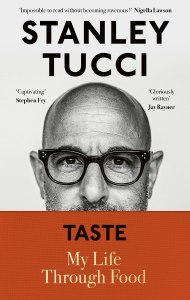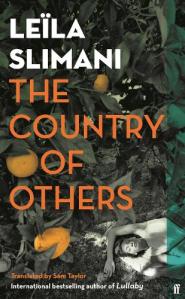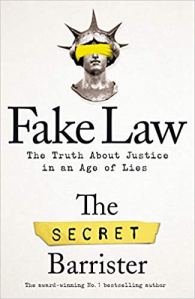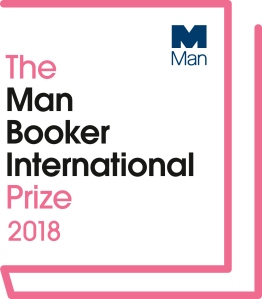 Stasiland by Anna Funder won the Samuel Johnson Prize for Non-Fiction in 2004 (now known as the Baillie Gifford Prize) and chronicles the lives of several people who lived in the German Democratic Republic, also known as East Germany, during the Cold War. Funder, an Australian journalist, was working in television in the mid-1990s when she put an ad in a newspaper seeking stories from those who experienced life under the Stasi regime. They include Miriam who was caught trying to cross the Berlin Wall as a teenager, Julia whose Italian boyfriend raised suspicion among Stasi officers, and Frau Paul whose baby son was taken to a west Berlin hospital on the night the Wall was constructed leaving her stuck on the other side after refusing to inform for the Stasi. Funder also spoke to former Stasi officers, some of whom remained sympathetic to the regime. The number of Stasi officers and informants – estimated to be as high as 1 in 6.5 of the population – is staggering and their methods of surveillance, control and manipulation even more so. Given Funder collected these stories not long after the Wall fell, ‘Stasiland’ is an important collection of eyewitness accounts told by those who had recently lived through such a turbulent time. Continue reading
Stasiland by Anna Funder won the Samuel Johnson Prize for Non-Fiction in 2004 (now known as the Baillie Gifford Prize) and chronicles the lives of several people who lived in the German Democratic Republic, also known as East Germany, during the Cold War. Funder, an Australian journalist, was working in television in the mid-1990s when she put an ad in a newspaper seeking stories from those who experienced life under the Stasi regime. They include Miriam who was caught trying to cross the Berlin Wall as a teenager, Julia whose Italian boyfriend raised suspicion among Stasi officers, and Frau Paul whose baby son was taken to a west Berlin hospital on the night the Wall was constructed leaving her stuck on the other side after refusing to inform for the Stasi. Funder also spoke to former Stasi officers, some of whom remained sympathetic to the regime. The number of Stasi officers and informants – estimated to be as high as 1 in 6.5 of the population – is staggering and their methods of surveillance, control and manipulation even more so. Given Funder collected these stories not long after the Wall fell, ‘Stasiland’ is an important collection of eyewitness accounts told by those who had recently lived through such a turbulent time. Continue reading
Tag Archives: Translated Fiction
Books I Read in July 2023
Filed under Books
Books I Read in March
 I am rather partial to memoirs centred around food and I read two excellent ones last month, one of which was Taste: My Life Through Food by Stanley Tucci. Tucci’s grandparents emigrated to the United States from Calabria, so his childhood growing up in Westchester, New York featured a lot of traditional Italian cooking. Food has also been a big influence in his acting career, including his 1996 debut directorial feature ‘Big Night’ about two brothers running an Italian restaurant. As expected, there’s a fair bit of celebrity name-dropping, but Tucci also gives great insight into how catering works on film sets and he now has the luxury of being able to choose projects based on where in the world they are shot and whether the food will be any good. He also describes his diagnosis, treatment and recovery from a tumour at the base of his tongue which was discovered a few years ago, leaving him unable to eat properly. Less of a conventional chronological memoir and more about the importance of food in his life, ‘Taste’ is nevertheless a delectable read.
I am rather partial to memoirs centred around food and I read two excellent ones last month, one of which was Taste: My Life Through Food by Stanley Tucci. Tucci’s grandparents emigrated to the United States from Calabria, so his childhood growing up in Westchester, New York featured a lot of traditional Italian cooking. Food has also been a big influence in his acting career, including his 1996 debut directorial feature ‘Big Night’ about two brothers running an Italian restaurant. As expected, there’s a fair bit of celebrity name-dropping, but Tucci also gives great insight into how catering works on film sets and he now has the luxury of being able to choose projects based on where in the world they are shot and whether the food will be any good. He also describes his diagnosis, treatment and recovery from a tumour at the base of his tongue which was discovered a few years ago, leaving him unable to eat properly. Less of a conventional chronological memoir and more about the importance of food in his life, ‘Taste’ is nevertheless a delectable read.
Continue reading
Filed under Books
Summer Reading: Part Two
 The Country of Others by Leïla Slimani, translated from the French by Sam Taylor, is the first book in a planned trilogy of historical fiction. In a very different setting and genre from Slimani’s breakout thriller Lullaby, ‘The Country of Others’ opens just after the Second World War when a Frenchwoman from Alsace, Mathilde, falls in love with Amine, a Moroccan soldier fighting for the French and moves to Morocco with him in 1946 when they get married. Mathilde raises their daughter, Aïcha, and son, Selim while Amine works on the farm, but she becomes increasingly disillusioned with her choices. Inspired by the life of Slimani’s grandmother, who also left Alsace after marrying a Moroccan soldier, ‘The Country of Others’ is a very personal project for Slimani. It suffers slightly from a lack of narrative drive, often reading as a series of vignettes, but perhaps a bigger picture will emerge as the trilogy progresses. I look forward to reading the next instalment which will be set in the 1960s. Continue reading
The Country of Others by Leïla Slimani, translated from the French by Sam Taylor, is the first book in a planned trilogy of historical fiction. In a very different setting and genre from Slimani’s breakout thriller Lullaby, ‘The Country of Others’ opens just after the Second World War when a Frenchwoman from Alsace, Mathilde, falls in love with Amine, a Moroccan soldier fighting for the French and moves to Morocco with him in 1946 when they get married. Mathilde raises their daughter, Aïcha, and son, Selim while Amine works on the farm, but she becomes increasingly disillusioned with her choices. Inspired by the life of Slimani’s grandmother, who also left Alsace after marrying a Moroccan soldier, ‘The Country of Others’ is a very personal project for Slimani. It suffers slightly from a lack of narrative drive, often reading as a series of vignettes, but perhaps a bigger picture will emerge as the trilogy progresses. I look forward to reading the next instalment which will be set in the 1960s. Continue reading
Filed under Books
Three Books in Translation
 After a long period of neglect, I have been reading more books in translation recently, including some recently published titles. There’s No Such Thing as an Easy Job by Kikuko Tsumura has been translated from the Japanese by Polly Barton and sees an unnamed woman in her mid-30s walk into an employment agency looking for a job that has the following traits: it is close to her home, requires no reading or writing and preferably very little thinking. The book follows her attempts at five different roles: surveillance, recording voice ads for buses, writing fun facts to be printed on cracker wrappers, putting up posters and park maintenance. Tsumura wrote her debut novel after her own experience of job burnout and it captures a sense of listlessness in a way that will have you counting down the days until you are entitled to claim your own pension. With deadpan humour and a bit of magical realism, it ends up being a bit of an aimless novel overall, yet also quite thought-provoking about the meaning of job satisfaction, particularly in the context of workplace culture in Japan which is known for extreme presenteeism.
After a long period of neglect, I have been reading more books in translation recently, including some recently published titles. There’s No Such Thing as an Easy Job by Kikuko Tsumura has been translated from the Japanese by Polly Barton and sees an unnamed woman in her mid-30s walk into an employment agency looking for a job that has the following traits: it is close to her home, requires no reading or writing and preferably very little thinking. The book follows her attempts at five different roles: surveillance, recording voice ads for buses, writing fun facts to be printed on cracker wrappers, putting up posters and park maintenance. Tsumura wrote her debut novel after her own experience of job burnout and it captures a sense of listlessness in a way that will have you counting down the days until you are entitled to claim your own pension. With deadpan humour and a bit of magical realism, it ends up being a bit of an aimless novel overall, yet also quite thought-provoking about the meaning of job satisfaction, particularly in the context of workplace culture in Japan which is known for extreme presenteeism.
Filed under Books
My Most Anticipated Books of 2021
There are a lot of new books coming in 2021. Here are the titles I am looking forward to reading the most, although I probably won’t get round to all of them this year. All publication dates where known apply to the United Kingdom only.
High-profile debut novels out in early 2021 include Luster by Raven Leilani and No One Is Talking About This by Patricia Lockwood whose memoir Priestdaddy I reviewed last month. Several of the books I will be looking out for are second novels by authors who have written impressive debuts. Hot Stew by Fiona Mozley is set in modern-day Soho in London and sounds like a real departure from the Booker Prize-shortlisted Elmet. The High House by Jessie Greengrass is the second novel by the author of Sight. It addresses climate change and is out in April. Panenka by Ronan Hessian sees the author of the word-of-mouth success Leonard and Hungry Paul return with his new novel in May about a man who is living with mistakes he made in the past. Out in February, Light Perpetual by Francis Spufford tells the possible stories of five children if they hadn’t been killed by a V2 bomb in London in 1944 – a very different concept and setting from the 18th century New York depicted in his debut Golden Hill.
Filed under Books
My Most Anticipated Books of 2020
 I have an ever-growing list of anticipated books due to be published in 2020. Here are the titles I am looking forward to reading the most. All publication dates where known are for the United Kingdom only.
I have an ever-growing list of anticipated books due to be published in 2020. Here are the titles I am looking forward to reading the most. All publication dates where known are for the United Kingdom only.
In non-fiction, Notes from an Apocalypse by Mark O’Connell is the Wellcome Book Prize-winning author’s second book after To Be a Machine. Due in April, it will explore how we get to grips with the future and the possible end of the world in an age of anxiety.
Also due in April, Fake Law: The Truth About Justice in an Age of Lies by The Secret Barrister promises to be an equally eye-opening account as his/her bestselling debut book of how the legal system really works, this time focusing on themes of ignorance, corruption and fake news. Continue reading
Filed under Books
The Capital by Robert Menasse
 I am sure there are many books of various genres currently being written about Britain leaving the European Union right now, but maybe not so many which satirise the complex bureaucracy of the EU itself. However, Robert Menasse’s novel addresses the latter topic, won the German Book Prize in 2017 and has now been translated into English by Jamie Bulloch. Set in Brussels where the headquarters of the main EU institutions are located, the Directorate-General for Culture has been tasked with organising a celebration to mark the 50th anniversary of the European Commission. Martin Susman, the Austrian PA to ambitious Greek Cypriot Fenia Xenopoulou suggests putting Auschwitz survivors at the centre of the jubilee event. Meanwhile, the complexities of European agricultural policy, trade deals and the cost of pork exports to China cause headaches and petty power games galore and Inspector Brunfaut is investigating the death of an unnamed man in the Hotel Atlas. Oh, and a pig is running wild in the streets of Brussels too. Continue reading
I am sure there are many books of various genres currently being written about Britain leaving the European Union right now, but maybe not so many which satirise the complex bureaucracy of the EU itself. However, Robert Menasse’s novel addresses the latter topic, won the German Book Prize in 2017 and has now been translated into English by Jamie Bulloch. Set in Brussels where the headquarters of the main EU institutions are located, the Directorate-General for Culture has been tasked with organising a celebration to mark the 50th anniversary of the European Commission. Martin Susman, the Austrian PA to ambitious Greek Cypriot Fenia Xenopoulou suggests putting Auschwitz survivors at the centre of the jubilee event. Meanwhile, the complexities of European agricultural policy, trade deals and the cost of pork exports to China cause headaches and petty power games galore and Inspector Brunfaut is investigating the death of an unnamed man in the Hotel Atlas. Oh, and a pig is running wild in the streets of Brussels too. Continue reading
Filed under Books
Convenience Store Woman by Sayaka Murata
 Translated from the Japanese by Ginny Tapley Takemori, ‘Convenience Store Woman’ by Sayaka Murata tells the story of Keiko Furukura, a socially awkward woman in her mid-thirties who has been working at the Hiiromachi Station Smile Mart shop for the past eighteen years. She feels under pressure from others, particularly her family, to appear “normal” and meet society’s expectations, by which she must find a career with more prospects or get married and have children.
Translated from the Japanese by Ginny Tapley Takemori, ‘Convenience Store Woman’ by Sayaka Murata tells the story of Keiko Furukura, a socially awkward woman in her mid-thirties who has been working at the Hiiromachi Station Smile Mart shop for the past eighteen years. She feels under pressure from others, particularly her family, to appear “normal” and meet society’s expectations, by which she must find a career with more prospects or get married and have children.
Continue reading
Filed under Books
Flights by Olga Tokarczuk
 I have recently read this year’s winner of the Man Booker International Prize ‘Flights’ by Olga Tokarczuk which was first published in Poland back in 2007 and has been translated by Jennifer Croft. I didn’t have time to shadow the MBIP last spring but as August is Women in Translation Month, this seemed like a good time to find out what to make of it. ‘Flights’ is about an unnamed woman and her reflections on travelling – and that’s about it as far as plot goes in this very fragmented book which can only be described as a “novel” in the loosest sense possible as it is more of a collection of thematically linked observations and vignettes. Continue reading
I have recently read this year’s winner of the Man Booker International Prize ‘Flights’ by Olga Tokarczuk which was first published in Poland back in 2007 and has been translated by Jennifer Croft. I didn’t have time to shadow the MBIP last spring but as August is Women in Translation Month, this seemed like a good time to find out what to make of it. ‘Flights’ is about an unnamed woman and her reflections on travelling – and that’s about it as far as plot goes in this very fragmented book which can only be described as a “novel” in the loosest sense possible as it is more of a collection of thematically linked observations and vignettes. Continue reading
Filed under Books
Lullaby by Leïla Slimani
 Winner of the prestigious Prix Goncourt and recently translated from the French by Sam Taylor, ‘Lullaby’ by Leïla Slimani has been one of the most talked-about novels so far this year, partly inspired by a real-life case of a nanny who killed two children in New York in 2012. Paul and Myriam live in a fashionable area of north-west Paris with their two young children, Mila and Adam. Paul works in the music business and Myriam is a criminal lawyer of North African descent who hires a nanny, Louise, to look after the children when she decides to resume her career. Initially, Louise appears to be perfect and indispensable to the family, but her behaviour becomes increasingly concerning. Continue reading
Winner of the prestigious Prix Goncourt and recently translated from the French by Sam Taylor, ‘Lullaby’ by Leïla Slimani has been one of the most talked-about novels so far this year, partly inspired by a real-life case of a nanny who killed two children in New York in 2012. Paul and Myriam live in a fashionable area of north-west Paris with their two young children, Mila and Adam. Paul works in the music business and Myriam is a criminal lawyer of North African descent who hires a nanny, Louise, to look after the children when she decides to resume her career. Initially, Louise appears to be perfect and indispensable to the family, but her behaviour becomes increasingly concerning. Continue reading
Filed under Books
The Man Booker International Prize Longlist 2018

The Man Booker International Prize 2018 longlist was announced yesterday. The 13 books are:
The 7th Function of Language by Laurent Binet, translated by Sam Taylor
The Impostor by Javier Cercas, translated by Frank Wynne
Vernon Subutex 1 by Virginie Despentes, translated by Frank Wynne
Go, Went, Gone by Jenny Erpenbeck, translated by Susan Bernofsky
The White Book by Han Kang, translated by Deborah Smith
Die, My Love by Ariana Harwicz, translated by Sarah Moses and Carolina Orloff
The World Goes On by László Krasznahorkai, translated by John Batki, Ottilie Mulzet and George Szirtes
Like a Fading Shadow by Antonio Muñoz Molina, translated by Camilo A Ramirez
The Flying Mountain by Christoph Ransmayr, translated by Simon Pare
Frankenstein in Baghdad by Ahmed Saadawi, translated by Jonathan Wright
Flights by Olga Tokarczuk, translated by Jennifer Croft
The Stolen Bicycle by Wu Ming-Yi, translated by Darryl Sterk
The Dinner Guest by Gabriela Ybarra, translated by Natasha Wimmer
Filed under Books
The Man Booker International Prize 2018 Longlist Predictions
 Although I’m not participating in the shadow panel this year, I have been thinking about possible contenders for this year’s Man Booker International Prize longlist which is due to be announced tomorrow. My predictions last year were very wide off the mark – maybe this year I will manage more than one…
Although I’m not participating in the shadow panel this year, I have been thinking about possible contenders for this year’s Man Booker International Prize longlist which is due to be announced tomorrow. My predictions last year were very wide off the mark – maybe this year I will manage more than one…
I have read a handful of eligible titles in recent months but I have only reviewed a couple of them on my blog:
Women Who Blow on Knots by Ece Temelkuran (translated from the Turkish by Alexander Dawe) – this is a book which has garnered increasing attention. I’m less sure about its shortlist chances – the plotting is a bit all over the place – but its topical themes contrast strongly with what is still likely to be a longlist dominated by male authors.
Men Without Women by Haruki Murakami (translated from the Japanese by Philip Gabriel and Ted Goossen) – short story collections are eligible as well as novels, although none have been longlisted so far. I enjoyed Murakami’s latest offering a lot and a place on the longlist would certainly help boost the profile of the Prize. Continue reading
Filed under Books
The Wellcome Book Prize Longlist 2018
 This year’s Wellcome Book Prize longlist has been announced today. The twelve books are:
This year’s Wellcome Book Prize longlist has been announced today. The twelve books are:
Stay With Me by Ayọ̀bámi Adébáyọ̀
The Butchering Art: Joseph Lister’s Quest to Transform the Grisly World of Victorian Medicine by Lindsey Fitzharris
In Pursuit of Memory: The Fight Against Alzheimer’s by Joseph Jebelli
Plot 29: A Memoir by Allan Jenkins
The White Book by Han Kang (translated by Deborah Smith)
With the End in Mind: Dying, Death and Wisdom in an Age of Denial by Kathryn Mannix
Midwinter Break by Bernard MacLaverty
To Be a Machine: Adventures Among Cyborgs, Utopians, Hackers, and the Futurists Solving the Modest Problem of Death by Mark O’Connell
I Am, I Am, I Am: Seventeen Brushes With Death by Maggie O’Farrell
Mayhem: A Memoir by Sigrid Rausing
Behave: The Biology of Humans at Our Best and Worst by Robert Sapolsky
The Vaccine Race: How Scientists Used Human Cells to Combat Killer Viruses by Meredith Wadman Continue reading
Filed under Books
My Books of the Year 2017
I have read a lot of great books this year, some new and some not quite so new. Here are some of my favourites:
 Among new fiction titles, The Nix by Nathan Hill and Little Fires Everywhere by Celeste Ng were both memorable stand-outs. I also reread His Dark Materials by Philip Pullman ahead of the publication of La Belle Sauvage, the first part of the Book of Dust trilogy – a thrilling and imaginative story which did not disappoint. Solar Bones by Mike McCormack was an unexpected delight from this year’s Man Booker Prize longlist – beautifully written, gripping, funny and inventive. Continue reading
Among new fiction titles, The Nix by Nathan Hill and Little Fires Everywhere by Celeste Ng were both memorable stand-outs. I also reread His Dark Materials by Philip Pullman ahead of the publication of La Belle Sauvage, the first part of the Book of Dust trilogy – a thrilling and imaginative story which did not disappoint. Solar Bones by Mike McCormack was an unexpected delight from this year’s Man Booker Prize longlist – beautifully written, gripping, funny and inventive. Continue reading
Filed under Books
Women Who Blow on Knots by Ece Temelkuran
 Translated from the Turkish by Alexander Dawe, ‘Women Who Blow on Knots’ by Ece Temelkuran won the Edinburgh First Book Award earlier this year and I bought my copy during my visit to the city last summer. It tells the story of four women embarking on a road trip across North Africa from Tunisia to Lebanon during the Arab Spring. They are Tunisian activist and dancer Amira, Egyptian academic Maryam who is obsessed with Dido, Queen of Carthage, an unnamed Turkish journalist who narrates the story and the mysterious elderly Madam Lilla who has connections with the Russian mafia and intelligence agencies. It is Madam Lilla who invites the three women to accompany her on the trip although her real intentions for travelling to Lebanon only become clear much later. Continue reading
Translated from the Turkish by Alexander Dawe, ‘Women Who Blow on Knots’ by Ece Temelkuran won the Edinburgh First Book Award earlier this year and I bought my copy during my visit to the city last summer. It tells the story of four women embarking on a road trip across North Africa from Tunisia to Lebanon during the Arab Spring. They are Tunisian activist and dancer Amira, Egyptian academic Maryam who is obsessed with Dido, Queen of Carthage, an unnamed Turkish journalist who narrates the story and the mysterious elderly Madam Lilla who has connections with the Russian mafia and intelligence agencies. It is Madam Lilla who invites the three women to accompany her on the trip although her real intentions for travelling to Lebanon only become clear much later. Continue reading
Filed under Books
The Evenings by Gerard Reve
 ‘The Evenings’ by Gerard Reve has been hailed as a “postwar masterpiece” and “the best Dutch novel of all time” but has only recently been translated by Sam Garrett and published in the UK for the first time by Pushkin Press late last year, nearly seven decades after it was first printed in the Netherlands. It tells the story of Frits van Egters, a 23-year-old clerk living with his parents in Amsterdam who struggles to fill his non-working hours with anything meaningful, spending his evenings walking past the canals, seeking out conversation with his small group of friends including his brother Joop.
‘The Evenings’ by Gerard Reve has been hailed as a “postwar masterpiece” and “the best Dutch novel of all time” but has only recently been translated by Sam Garrett and published in the UK for the first time by Pushkin Press late last year, nearly seven decades after it was first printed in the Netherlands. It tells the story of Frits van Egters, a 23-year-old clerk living with his parents in Amsterdam who struggles to fill his non-working hours with anything meaningful, spending his evenings walking past the canals, seeking out conversation with his small group of friends including his brother Joop.
Continue reading
Filed under Books
Three Books for Women in Translation Month
As some of you may already know, August is Women in Translation Month (founded by book blogger Meytal at Biblibio in 2014) which aims to increase readership of translated books by female authors and raise awareness of the gender imbalance in publishing (estimates vary but currently only around 25-30% of books translated into English are by female authors). The three titles I have been reading this month from authors based in Israel, Austria and Mexico showcase the variety of fiction written by women around the world and championed by independent publishers Pushkin Press, Peirene Press and Granta.
 Waking Lions by Ayelet Gundar-Goshen (translated from the Hebrew by Sondra Silverston) tells the story of Dr Eitan Green, a neurosurgeon who has recently relocated to the Israeli city of Beersheba and is involved in a collision with an illegal Eritrean immigrant while he is driving home from work through the desert. In a panic, Eitan leaves him to die at the side of the road, but the dead man’s widow shows up the next day on his doorstep holding his wallet which he left at the scene and blackmails him into providing medical assistance to other illegal immigrants in the area. To complicate matters even further, Eitan’s wife Liat is the police detective tasked with uncovering the identity of the driver who left the scene of the hit-and-run. Continue reading
Waking Lions by Ayelet Gundar-Goshen (translated from the Hebrew by Sondra Silverston) tells the story of Dr Eitan Green, a neurosurgeon who has recently relocated to the Israeli city of Beersheba and is involved in a collision with an illegal Eritrean immigrant while he is driving home from work through the desert. In a panic, Eitan leaves him to die at the side of the road, but the dead man’s widow shows up the next day on his doorstep holding his wallet which he left at the scene and blackmails him into providing medical assistance to other illegal immigrants in the area. To complicate matters even further, Eitan’s wife Liat is the police detective tasked with uncovering the identity of the driver who left the scene of the hit-and-run. Continue reading
Filed under Books







 ‘Men Without Women’ by Haruki Murakami is the renowned Japanese author’s first new collection of short stories to be translated into English in over a decade. Echoing Ernest Hemingway’s collection of the same name, the seven tales in this collection are indeed about men experiencing loneliness and isolation without the women who are now absent from their lives for various reasons. The stories have been translated by Ted Goossen and Philip Gabriel who have both worked on many of Murakami’s previous books.
‘Men Without Women’ by Haruki Murakami is the renowned Japanese author’s first new collection of short stories to be translated into English in over a decade. Echoing Ernest Hemingway’s collection of the same name, the seven tales in this collection are indeed about men experiencing loneliness and isolation without the women who are now absent from their lives for various reasons. The stories have been translated by Ted Goossen and Philip Gabriel who have both worked on many of Murakami’s previous books.



You must be logged in to post a comment.